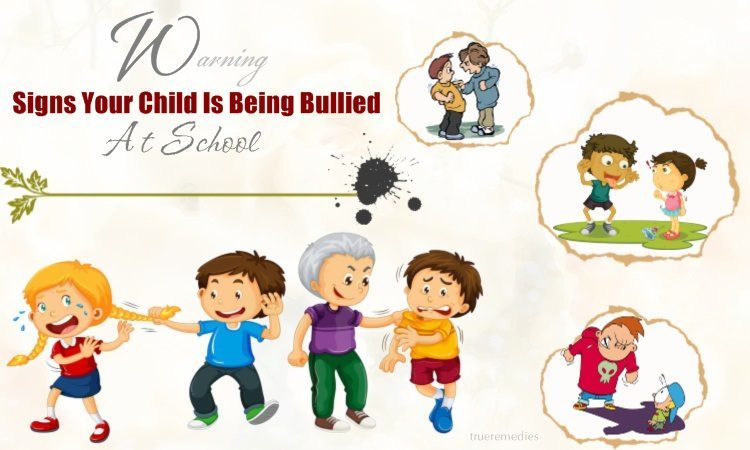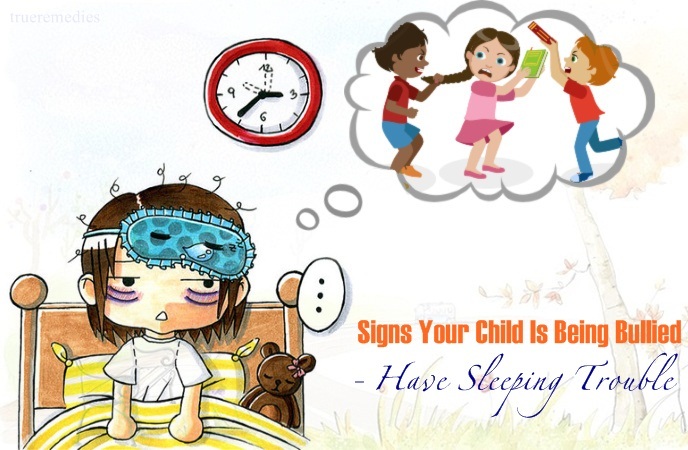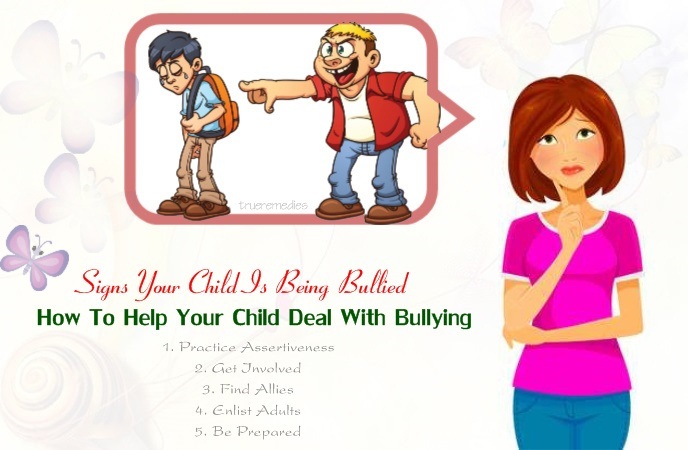Contents
The start of academic education at school is an exciting and memorable experience for most children, as there are new friends, new classes, and new teachers. However, if your child is getting bullied at school, the academic year will be full of shame or anxiety and stress for him. How can you tell if your child is a victim of bullying? In this article, I would like to introduce to you in this article.
Sometimes, bullying in real life or cyberbullying is something unavoidable we have to deal with during the growing up. However, not all children can overcome bullying by themselves. The National Center for Education Statistics stated that in 2016, one out of every five students is being bullied in which 64% do not report it[1].
Bullying has not only temporary effects but also numerous long-term impacts including anxiety, depression, insomnia, lack of focus in school, behavior changes, and so on. People who do not have strong parental support will have to face lasting serious damage.
A child who is bullied often hesitate or is afraid to tell their parents or someone else even though you want them to open up about any difficulties or problems. However, there are some silent but warning signs your child is being bullied at school or over cyber you can identify to help your child.
12 Warning Signs Your Child Is Being Bullied At School
1. Reluctant To Go To School
A school is often a common place for bullying. Therefore, your child’s reluctance to wake up and go to school could be one of the signs your child is being bullied at school. To know whether your child is a victim of school bullying or not, you should talk with his teachers periodically to check his attendance for the class.
The early time of week such as Mondays is the ideal time for you to keep your eyes out for because most children want to avoid school on Mondays. The possible explanation may be that your child feels safe on the weekends, and he will think going back to school on Monday is challenging and difficult.
TrueRemedies Partner Solutions

Need a Help from the Leading Expert Online, Available 24/7?
They’re all here and ready to answer your questions online or by phone. Keep asking questions until you get the answer you need.
2. Changes Or Loss In Friendship
Changes or loss in friendship is also the signs of bullying, especially in teen and adolescent girls[2]. Your child may be reluctant to hang out with her friend group or act abnormally when you talk about her friends.
This sign of bullying seems difficult for parents to notice and hard for them to deal with. Any invasion in your child’s friend could worsen the condition and make your child lose trust in you. However, it is okay if you connect with other parents in the friend group your child currently plays with. By doing that, you will know when your child is refused to take part in birthday parties or special events.
3. Pains, Stomachaches, And Headaches
When your child does not want to go to school, you should pay attention to his excuses likes pains or aches. Furthermore, stomach aches and headaches are also physical symptoms of anxiety and stress caused by bullying[3]. They could be fake excuses for your child to avoid school and other social activities.
Therefore, when your child tells you about these symptoms regularly, you should not doubt or get angry because that only makes your child more stressed and anxious. Instead, it is recommended to say something like, “You feel sick a lot currently; what is wrong? Can you tell me?” By asking the open questions, you will make your child feel calm and willing to tell you the root of the problem.
4. Have Sleeping Trouble
A bullied child will be anxious and nervous about the next day at school or somewhere, so it results in the trouble sleeping. They will find it difficult to fall asleep or continuously turn and toss on the bed.
A child who looks tired at breakfast, unable to focus, or less likely to maintain the proper hygiene may suffer from trouble sleeping and bullying[4] [5]. You should make sure your child is getting good and deep sleep and always encourage them to tell you the things that are happening at school and during their day.
5. Do Not Want To Interact With The Family
Bullying will make changes in your child’s relationship and behavior[6] [7]. For instance, they will be less active and talkative than normally. They may not want to play or talk with their siblings, which could be one of the silent signs your child is being bullied. The only way to make them become reactive and talkative with siblings or family members is to help them drop the “bullying victim stance.”
6. Intense Emotional Reactions
A teen or child with bullying issue often has intense emotional reactions when you talk with them about their social and school activities[8] because they see these events and activities anxious, difficult, and obsessing.
When you see your child have this sign; it is important for you to delve into the problem and then find out the best solution.
7. Withdrawal From Or Obsession With Any Devices
When a child is suffering from bullying that especially takes place online, they may show one of two things: An over obsession with electronic devices or total withdrawal from these electronic devices.
Cyberbullying[9] is also a common form of bullying when your child is afraid or obsessed with what people are talking about them on the internet. When finding a child has intense emotional problems toward the electronic devices, many parents try and limit their usage; however, sometimes it is difficult for you to resolve it.
Prevention is better than any solution. Therefore, it is recommended to build guidelines and rules for online engagement in the first place.
Some teens or children who are being cyberbullied are found reluctant to tell their parents because they are afraid of their devices taken away. So, any interruption will make your child feel worse. If you want to help them, a good solution is to limit the time they engage in online activities during the day.
8. Physical Marks And Torn Clothing
Inexplicably torn, stolen or ruined clothes and belongings and physical bruises or scrapes are the signs of prolonged bullying you should notice in your child[10]. The child may not want to explain anything about these physical marks. So, it is important for you to be patient and ask them the open questions like “What happens today?”, “How did you feel?”.
9. Loss Of Confidence
Being bullied for a long time will result in the loss of confidence and assertiveness in your child[11]. They may lack social skills and be unable to stand up for themselves. Your child may always show a victim stance such as walking with the head down, being silent and feeling difficult to speak their mind.
These children will easily become a victim of bullying year after year. Therefore, when you see your child holding a victim stance, it is important for you to help them gain confidence. You can let them take part in activities that do not require the competition with other players like martial arts and judo. These activities will help to build their confidence while reducing the stress and pressure of pleasing someone.
10. Changes In Their Eating Habits
Does your child always feel hungry after finishing school or he skips dinner and only eat late at night? You should pay attention to your child’s eating habits because any sudden or abnormal changes are the signs your child is being bullied[12] [13].
11. Declining Grades
It is understandable when you want your child to have a good academic performance at school. Naturally and normally kids always want to get the good classes. However, getting bullied at school may affect their grade.
The frequent anxiety and worrying will affect your child’s ability to pay attention and focus in the classroom. Furthermore, loneliness, anxiety, depression, and trouble sleeping also result in the problems with their performance at school.
When you see your child’s grades are declining, it is better not to get angry or force your child to study harder[14]. Instead, you should identify the hidden root problems and solve them.
12. Missing Out On Activities And Sports
Your child, who is a victim of bullying may not want to take part in the after-school activities or school sports because they are social interactions children, are likely to get bullying. If your child is afraid of playing certain sports he loved before because he feels he is not good enough or thinks he is a cause of team losing in the game, it could indicate your child is suffering from bullying by another team member. Your child can withdraw from his team or show no longer interest in any activity or sport. The bullying may make your child want to avoid this social interaction.
Being good parents, you should notice whether your child is spending a lot of time on the computer, texting friends, and playing video games rather than interacting with people in real life. If not solved, that may isolate themselves from these sports and activities.
It is a great idea for you to suggest your child to take part in different team or activity, which makes them comfortable and confident[15].
How To Help Your Child Deal With Bullying
If your child is brave to report that he or she is suffering from bullying, you should take it seriously because it may really hurt their feelings, and it is difficult for them to deal with it. Do not treat your child as if they are fragile. Instead, you should listen to them and express your empathy. Always show them the confidence that we can solve this issue.
Don’t show your anger or shock. Don’t immediately go to their classes or talk with other children's parents. The more patient and calmer you are, the better your child will feel. Furthermore, that also helps them be willing to open up the problem.
When your child is getting bullied at school or somewhere else, you can consider this bullying advice.
1. Practice Assertiveness
This attitude should be shown both nonverbally and verbally. You can suggest your child standing for himself and saying: “Don’t behave like that!”. It is a great idea for you to write something your child can say and do the role-play first before letting your child do it in front of his friends. An assertiveness training program may help to increase the assertiveness level and reduce the state of being bullied victims[16].
2. Get Involved
Never force your child to do what they do not like or are not good at. Instead, let your child play or take part in social activities and sports they enjoy. Because if he is doing the activities he is good at, he becomes stronger, safer, and more confidence. He will be able to deal with difficult problems.
3. Find Allies
Sometimes finding the needed support is a must to overcome a problem, especially of bullying. You can let your child talk to some of his friends about the problems. That will create some good ideas for them and also keep him less isolated.
4. Enlist Adults
In some cases, your child may need an advocate from the adult, so you can consider talking to a school administrator or a teacher.
However, it is important for you to ask your child’s permission by telling her, “I really want to help you by calling your teacher and asking her to keep an eye on this problem.” If they are reluctant or against it, you should make the option open by saying something like “I am not going now. If I do, I will tell you before.” There are some solutions for you to help your child deal with bullying at school, but that is going to teach your child a lesson “It seems embarrassing, but you should stand up for yourself and self-advocacy plays as an important factor.
5. Be Prepared
It is a thumb of rule for dealing with the difficulty in your child’s growing up period. You should talk to your child about the bullying even if it has not occurred. Give them useful information and recommend some wonderful solutions for bullying. That will make your child well equipped and more comfortable to tell you about what happened at school.
6. Monitor Incidents
One incident does not mean your child is suffering from bullying, but it is still important for you to address the signs and figure out if it is a pattern. You should tell your child to let you know anything bad happens to him. You can say this “I want to help you control and make sure we can solve it together.”
7. Build A Good Relationship With The Teacher
Because the school is a place of bullying, a good relationship between you and your child’s teacher is important for you to protect your child from this environment.
You should let the teacher understand you hope her or him to keep an eye on your child and let you know if anything happens. Furthermore, if there is something you doubt and hope the teacher notices, you will do the same.
If not addressed and solved as soon as possible, the bullying will lead to many temporary and long term effects, even self-harming and invasive thought of suicide. So, taking steps to make sure your child live and study in a safe environment is important for their growing up. In the serious cases that you and your child can not deal with, it is recommended to seek help from a mental health professional. I hope that you will find useful information in this article about Trueremedies.com. Any questions can be left in the comment section, and we will answer them as soon as we can.











